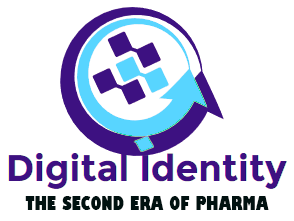What is ‘Digital Identity’ Pharma?
‘Digital Identity’ Pharma (DIP) is a global pharmaceutical company, based completely on blockchain technology. The company is still in concept-mode. It was first proposed in July 2017 in my Blockchain & Healthcare Strategy Guide 2017.
(Free Download here; Amazon Kindle ebook here).
The idea behind this potential future global player is that a whole pharmaceutical ecosystem can be placed on top of blockchain technology, paving the way to trusted and open R&D processes, trusted transactions between parties, powered by collective self-interest of a global community of independent investors. I got a huge positive feedback to my book and the idea of a global pharmaceutical company that is completely different to everything we have seen in human history. Here, I will try to explain the concept further and invite interested parties – governments, patients, investors, blockchain enthusiasts and pharma professionals – to make it happen.

Collaborating on a global scale, we can leverage rapidly accelerating technologies—including artificial intelligence, precision medicine, IoT, robotics, and blockchain— in innovative ways to build DIP and unlock previously unimagined solutions that can positively impact billions of lives.
Why do we need it?
The healthcare industry needs a revolution – and it is here now. Trusted and open R&D processes, auditable & secure transactions between parties, authenticated by mass collaboration and powered by collective self-interest, rather than by fewer and fewer pharmaceutical giants motivated by profit alone. This healthcare ecosystem is immune to exorbitant drug prices, tampering, fraud, or political control. The name of the technology that makes all this happen is blockchain, a tool that will fundamentally change the healthcare sector. Blockchain will prove to be indispensable in building a global precision-medicine ecosystem that optimally connects patients, clinicians, researchers, insurers and clinical laboratories to one another. Blockchain will improve data security, data sharing, interoperability, patient engagement, big data analytics, health information exchange, fighting counterfeit drugs, R&D processes, AI-based diagnostics and fostering vertical business models.